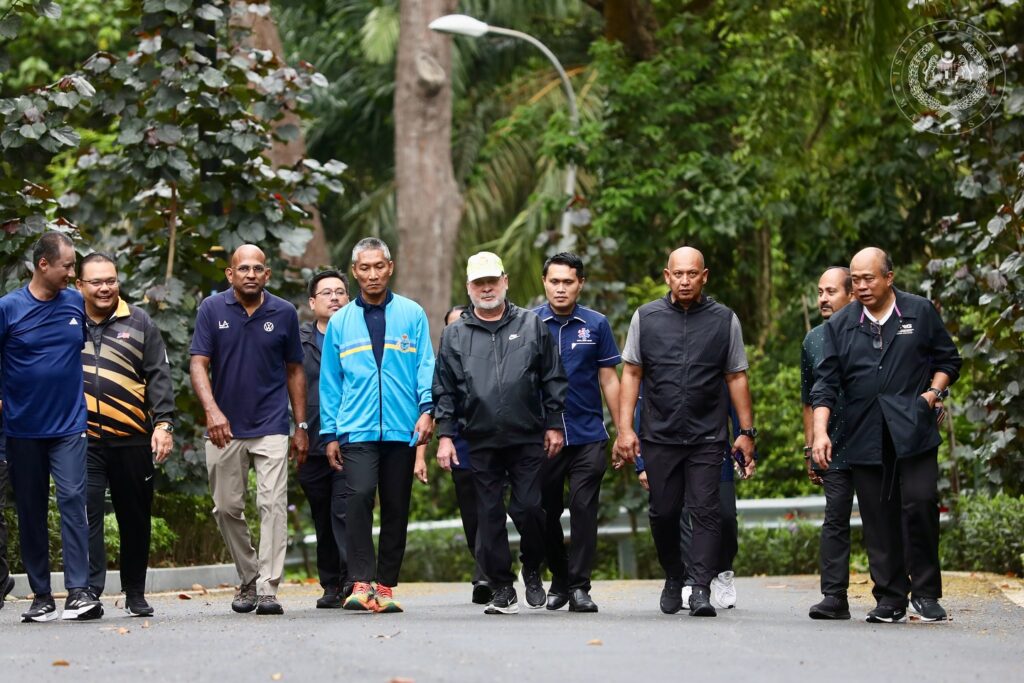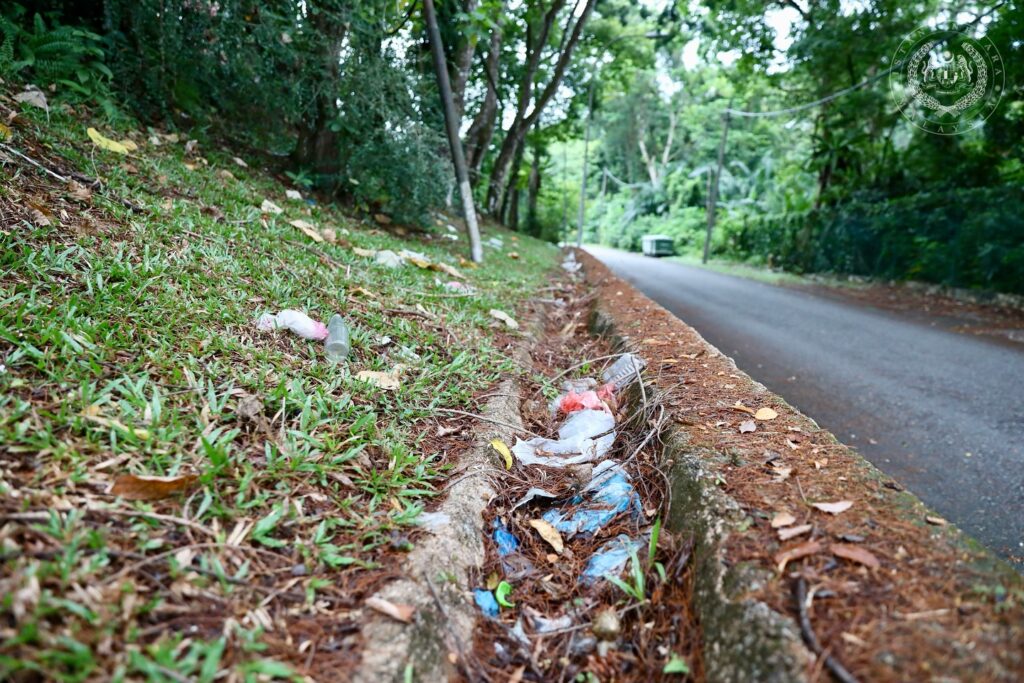
(Photo credit courtesy of FB Sultan Ibrahim Sultan Iskandar)
by Dr Rahim Said
Recently, His Majesty the King took a quiet walk through Bukit Tunku and made a simple observation: the place could be better kept, the trees better pruned, the rubbish better cleared — for the safety of those who pass, especially vulnerable motorcyclists navigating the treacherous, narrow streets.
Of course, when the King spoke, the entire machinery of Dewan Bandaraya Kuala Lumpur lurched to life. Rubbish was cleared, branches trimmed, and potholes patched. It took a sovereign’s presence to animate a slumbering bureaucracy.

But why must it be this way?
We have seen this pattern before. In the early days of Tun Dr Mahathir Mohamad, his journey from the old Sri Perdana to nearby Parliament House or the old PM’s Department at Jalan Dato’ Onn was a mobile audit. Every bump in the road was dutifully recorded in his little notebook, and by dawn the next day, that defect would vanish as if it never existed.
In the old kampungs of Kedah, the surest way to get a road resurfaced was to engineer a visit from a minister. The moment his convoy was confirmed, the local JKR would spring into action, and by morning, the village would be proudly showing off its fresh coat of tar.
The message here is painfully clear: without a figure of authority watching, little moves. It has been like this since Merdeka, perhaps earlier.
But must we wait for kings, prime ministers, or politically connected local chiefs to direct our sense of duty?
Must civic responsibility be an act of deference instead of a daily habit?
The Japanese have long practised kaizen — the relentless, almost sacred commitment to continuous, incremental improvement. That kept their drains clean with multicoloured koi swimming for tourists to see.
In American management schools, it is called MBWA — Management By Walking Around. In both cultures, it is the leader’s constant, visible presence that reminds systems and people alike to stay vigilant.
Yet, long before these secular philosophies emerged, our faith offered fardhu kifayah — the communal obligation. The moral duty that demands a society collectively take responsibility for what must be done, lest the entire community be held accountable for neglect. It is a call to action not just for public servants, but for ordinary citizens, to tend to their streets, their rivers, their neighbourhoods — not in anticipation of a king’s visit, but because it is right.
In the 1990s, when we implemented Crosby’s Quality Without Tears, it was not a single VIP visit that kept standards high, but weekly operations meetings, photographic evidence, and collective ownership that pushed Malaysia’s infrastructure projects to award-winning heights. This was not magic — it was discipline, vigilance, and an honest culture of accountability.
We do not need to await another royal stroll or ministerial convoy. The spirit of kaizen, the ethic of quality, and the doctrine of fardhu kifayah must appear in our daily lives.
Every street cleared of rubbish, every river spared a plastic bottle, every lamp post repaired without delay — these are not small acts. They are the foundations of a dignified, just society.
The implication is profound: if we continue to outsource our conscience to rulers and politicians, we remain a nation of spectators.
But if we reclaim the quiet duty of daily vigilance, Malaysia could yet be a nation where kings walk not to awaken the civil service, but to affirm what a responsible people have already done.
For it is not the role of kings alone to notice the broken branches, or of ministers to instruct the clearing of drains. It is ours.
The moral fabric of a society is woven not in grand ceremonies or sweeping national plans, but in the small, often invisible acts of care and attention performed by ordinary citizens, in the belief that the space we occupy belongs to all of us, and that we are answerable to one another.
The philosophy of kaizen teaches us that improvement is not an event, but a habit. That greatness is achieved not in bursts of glory but through the tireless refining of ordinary tasks. And fardhu kifayah reminds us that leaving these tasks undone is not merely an administrative lapse, but a communal sin.
A pothole left unfilled, a river left polluted, a street left unlit — these are not just failures of governance, but failures of society.
In a time where the state machinery waits for a royal walkabout to be jolted into motion, perhaps it is time for a deeper reckoning.
We need to cultivate a culture where the highest office is the conscience of the people, where a King or Prime Minister doesn’t need to see what we should never tolerate.
Let us return to that ethic of shared duty, where every citizen is a steward, where civic pride is not tied to protocol, but to purpose. Let us build a nation where maintenance is not reactive but constant, where cleanliness and safety are not seasonal campaigns but everyday truths.
Because in the end, the measure of a society’s maturity is not how swiftly it responds to royal instruction, but how faithfully it performs its duties in the silence of ordinary days.
WE